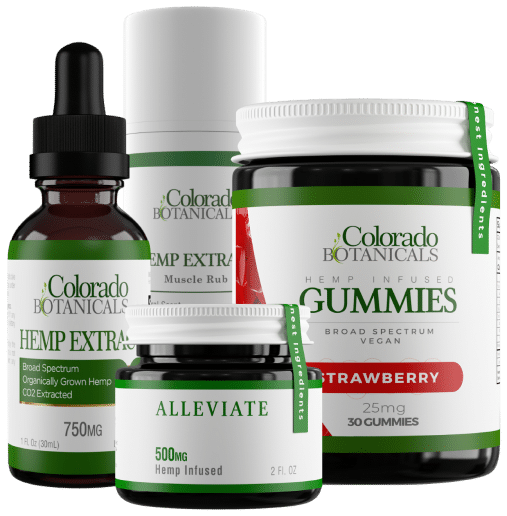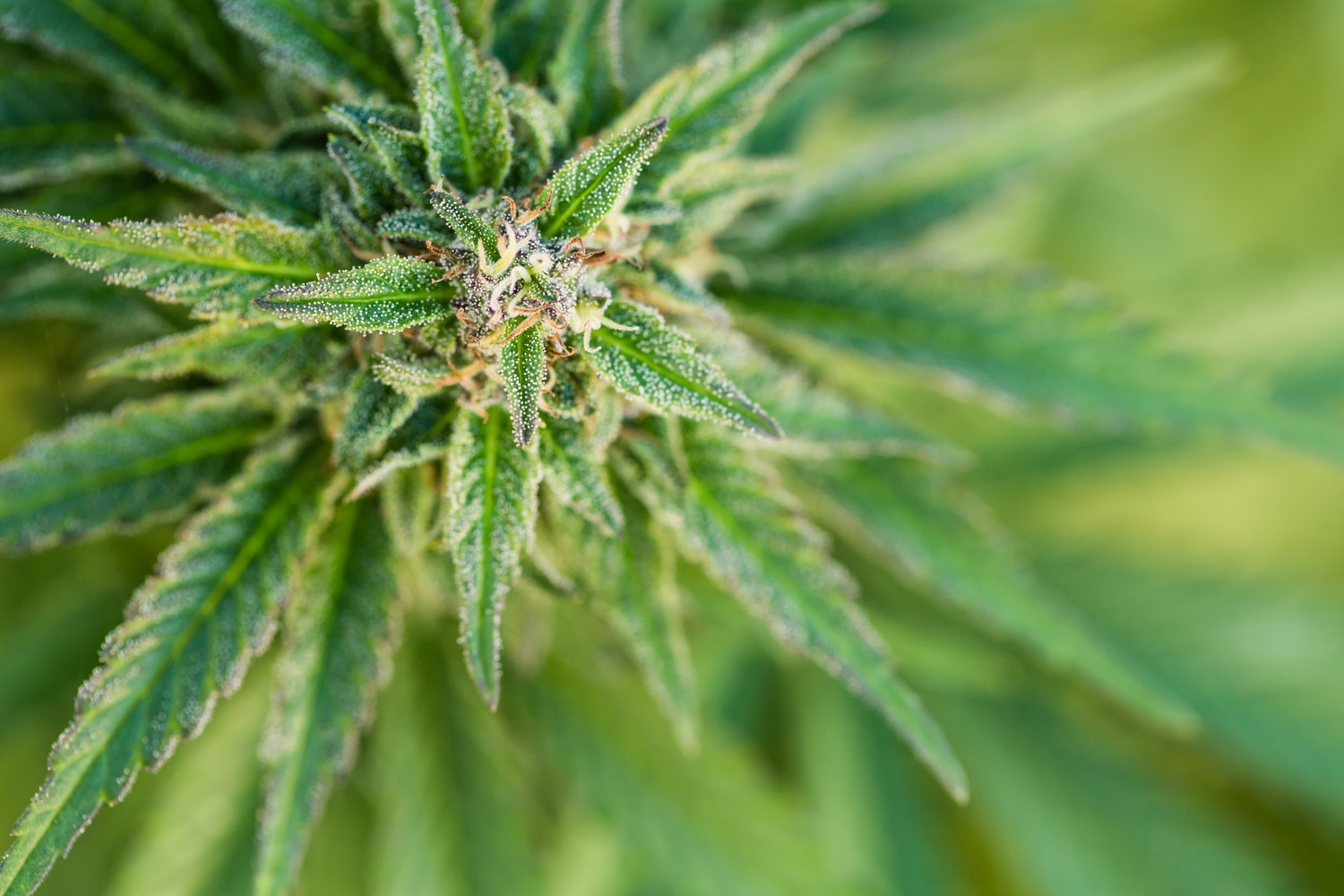CBD’s increasingly broad applications have made it a go-to natural supplement for various symptoms. While the evidence doesn’t fully support many health claims, CBD’s vasodilatory effects are well-documented.
Adequate blood pressure medications exist, but any medicine has risks associated with long-term use. In many cases, people with high blood pressure don’t tolerate the drugs or are apprehensive about pharmaceutical products.
But if cannabidiol reduces blood pressure, this opens up a world of possible benefits and risks. High blood pressure is a serious health concern, so you should take it lightly.
If you’re wondering if CBD can help control high blood pressure, it’s essential to understand how it works. More importantly, is CBD a safe, natural alternative for blood pressure control, and does current evidence support it?
Before you decide, let’s see how effectively CBD might lower blood pressure.
What is Hypertension?
Imagine a garden hose pouring water. It takes pressure to push that water through. But if the hose’s diameter shrinks, that water will come out faster and harder than the hose is designed for. Consequently, the increased friction and strain damage the hose over time. High blood pressure works the same way. But while a damaged hose is replaceable with a simple trip to your local hardware store, broken blood vessels are tricky to deal with – to put it mildly.
According to the CDC, hypertension (a.k.a. “high blood pressure”) is blood pressure that’s chronically higher than expected – emphasis on “chronically.” Naturally, external factors such as response to stress can affect baseline cardiovascular parameters.
In plain English, other stimuli – such as a job interview or argument – may temporarily affect stress response.
Hypertension, however, is different. A healthy baseline blood pressure, the CDC says, is below 120/80. The 120 represents systolic blood pressure (how hard the heart beats to push blood through the vessels), while the 80 number measures diastolic (artery pressure between beats).
When resting measurements hit 120 – 139 systolic blood pressure and 80 – 89 diastolic blood pressure, doctors refer to this as “at risk” or “prehypertension.” At this point, you might be able to nip high blood pressure in the bud if you address the underlying cause. For some, a lifestyle change is enough. But many have cardiovascular disorders or experience hypertension as they age.
Once the resting blood pressure chronically hits 140/90, you’ll be diagnosed with hypertension. At this point, taking blood pressure medications may be the most reliable option for cardiovascular disease prevention.
Ways to Treat Hypertension
Fortunately, there are effective ways of lowering blood pressure. Treatment options vary depending on the cause and severity. According to Medical News Today, a few options include:
- Dietary changes
- Exercise
- Stress reduction
- Eliminate drugs and alcohol
- Blood pressure medications
CBD oil may also improve blood flow by lowering blood pressure, but its mechanism of action with the cardiovascular system isn’t fully understood.
CBD and Blood Pressure: What Does CBD Do?
Early evidence suggests CBD has numerous cardiovascular benefits, including blood pressure reduction. But how does it work?
Unlike most cannabinoids, CBD doesn’t bind to the CB1 and CB2 endocannabinoid receptors in the central and peripheral nervous systems, respectively. Instead, it works through other pathways in the body responsible for regulating – among other things – pain, inflammation, and stress (mental or physical).
Evidence also suggests CBD is a vasodilator, meaning cannabidiol reduces blood pressure by dilating the blood vessels. Doing so improves blood flow, reducing the chances of blood clots or blockages from plaque.
That said, it’s always essential to maintain a healthy lifestyle to avoid clots and plaque buildup that can cause complications from high blood pressure.
Does CBD Lower Blood Pressure? CBD & Hypertension
There’s a strong chance that cannabidiol reduces blood pressure response during a physical or mental stress period, but its potential uses for hypertension aren’t clear.
For example, a 2017 randomized placebo-controlled, double-blind, crossover study examined nine healthy volunteers. After 10-15 minutes of rest, researchers tested each subject’s digital blood pressure, heart rate, and forearm skin blood flow measurements. They then received 600 mg of oral CBD oil or placebo before being exposed to several cardiovascular stress tests to raise blood pressure. These evaluations involved physical and cognitive stimuli, including a cold stress test, isometric exercise stress test, and mental stress test period. According to the findings:
“…a single dose of CBD reduces resting blood pressure and the blood pressure response to stress, particularly cold stress, and especially in the post-test periods. CBD also affected cardiac parameters but without affecting cardiac output” (Jadoon et al., 2017).
In other words, the tests increased baseline cardiovascular data. However, the CBD groups showed lower high blood pressure and forearm skin blood flow before and during the stress test periods, compared to their placebo counterparts.
However, the researchers theorize that CBD’s potential analgesic effects reduced discomfort and pain during the evaluations, which helped prevent an increased blood pressure response.
It’s important to note that, unlike most CBD research – mainly animal, cell, or limited human studies – the above research was a complete randomized crossover study. Most CBD research on humans is self-reported, based on surveys or anecdotal evidence.
The study’s only weakness is its small sample, with only nine participants. Nonetheless, a randomized crossover study provides an additional layer of credibility – and optimism.
On the other hand, a 2020 experiment on animals with hypertension determined that:
“Although CBD has been found to exhibit vasodilatory and antioxidant properties in hypertension, it has not affected blood pressure in hypertensive animals. Hypotensive action of CBD has been mainly revealed under stress conditions” (Kicman et al., 2020).
The authors admit that while CBD demonstrated vasodilatory effects, they don’t seem to help animals with hypertension. They also point out that CBD’s ability to mitigate high blood pressure was only observed during stress tests.
Contradictory Findings: What Do They Mean for CBD and Blood Pressure?
The above research leaves us scratching our heads. Why can CBD reduce high blood pressure before and during stress test periods yet doesn’t affect hypertension?
Test subjects might have been a variable. The 2017 study used humans, while the 2020 publication uses animal research.
But at the same time, the humans were healthy volunteers with no underlying cardiovascular issues compared to the hypertensive animal subjects.
A potential explanation for the contradictory results is CBD’s mechanism of action. Again, it’s uncertain how CBD dilates blood vessels to improve blood flow. Cannabidiol may have no direct effect on the cardiovascular system. Instead, CBD’s vasodilatory benefits may be a side benefit of pain reduction and mood improvement.
If emotional regulation is the key to CBD’s effects on high blood pressure, then it makes sense why those under stress showed improvement, while animals with hypertension (and no stress tests) experienced no change.
We need more time to conduct large-scale human clinical trials. In the meantime, the only way to see if CBD can help with your hypertension is to try it first.
However, we strongly recommend against taking CBD for therapeutic purposes without consulting a medical professional. There’s little research (or evidence) that CBD can reduce human hypertension. Considering CBD’s possible interactions with blood pressure medicines, this is even more of a reason not to take CBD for high blood pressure without medical supervision.
Other Ways CBD Can Help Lower Blood Pressure
Based on what we know so far, reducing high blood pressure is a two-pronged approach. You need to control both behavioral and cardiovascular responses. This is conventional wisdom for anyone with high blood pressure, with or without CBD.
Can CBD Increase Blood Pressure?
Our (limited) observations show that CBD doesn’t increase systolic or diastolic blood pressure responses to stress, while its effects on hypertension are uncertain.
However, that doesn’t mean CBD can’t inadvertently increase blood pressure when other factors are involved. Specifically, certain blood pressure medications that interact with CBD increase the risk of complications.
We’ll cover that in detail shortly.
Can You Use CBD If You Have Low Blood Pressure?
Since CBD acts as a vasodilator, it could lower your blood pressure even further. However, hypotension (low blood pressure) has its own risks. Aggravating it by further lowering that pressure could make things worse.
If you have hypotension or are experiencing temporary low blood pressure, we don’t recommend using CBD. Its potential effects on blood flow could be dangerous.
CBD and Blood Pressure: A Double-Edged Sword
Like everything in our body, blood pressure is a delicate balance.
Signs of low blood pressure
If you take CBD oil for blood pressure, always keep in mind other things you consume could increase or decrease its efficacy (again, more on that soon).
After consuming your first dose, keep a close eye on how you feel. According to the U.K. National Health Service, the following symptoms could indicate low blood pressure:
- Dizziness
- Lightheadedness
- Nausea
- Vision problems
- Weakness
- Confusion
- Fainting (severe)
If you notice any of the above symptoms of low blood pressure, discontinue using CBD and consult a physician or other medical provider.
CBD Effects on Blood Pressure: Is CBD Safe to Use?
The CDC declared CBD safe to consume with no potential for abuse due to its non-intoxicating and non-addictive properties. However, it’s difficult to say if CBD is safe for blood pressure.
Healthy volunteers subjected to stress tests benefitted from the vasodilating effects of CBD. However, hypertensive animal subjects showed no improvement in either resting cardiovascular measurement or responses to stressors.
CBD on its own is safe to use for general wellness, but we don’t understand CBD enough to declare the same for certain symptoms or medical conditions.
How Much CBD To Take If You Have High Blood Pressure
Again, our understanding of CBD as a therapeutic tool is growing but still limited. A large dose of cannabidiol may improve blood flow in healthy volunteers under stressful conditions. But dosing is gradual if you plan to use CBD for blood pressure maintenance.
Low and slow
“Low and slow” is the motto for both CBD and THC. CBD is biphasic, meaning too much CBD is just as ineffective as too little.
Your body also needs time to get used to CBD. Some individuals respond quickly, while for others, getting the perfect dose and results could take weeks.
Start with a low amount, between 2.5 – 5 mg. Maintain that dose for about a week, then increase it by 2-3 mg every week until you feel relief. If all goes well, you may eventually notice lower blood pressure and better blood flow due (theoretically) to reduced stress.
Can CBD Interact with Blood Pressure Medications?
Yes, CBD can interact with blood pressure medications.
In a 2017 review of 132 studies, the authors cited CBD’s interaction with certain liver enzymes during the Epidiolex epilepsy drug trials (Iffland et al., 2017).
They note that CBD could interfere with the bioavailability and blood concentration of certain prescription drugs, specifically those metabolized by the CYP450 liver enzyme pathways.
But can the same be said for blood pressure medication? In short, the answer is “yes.” The purpose of the medicine isn’t what determines its compatibility with CBD. The P450 liver enzyme family metabolizes cannabidiol, so any medication processed through the same route will interact with CBD. Consequently, taking CBD could affect your medication’s physical and functional interaction.
This conflict might reduce the efficacy of blood pressure drugs, leading to increased blood pressure. However, it’s also possible that CBD will increase the drug’s blood concentration, making the medication too effective and triggering a dangerous drop in blood pressure.
We strongly recommend that you speak with a medical professional before using CBD for therapeutic or wellness purposes. Check out our blog post about CBD and drug interactions for more information.
Which CBD Product is Best for Blood Pressure?
The best CBD product for blood pressure depends on your needs. It boils down to either inhalation or ingestion.
Inhaled CBD
Inhaled CBD is available in various forms, such as vape cartridges, e-liquids, and dried flower. Smoking and vaping trigger effects within minutes, making those products ideal for sudden bouts of stress-related increases in blood pressure.
If you choose to inhale CBD, we recommend vaporization, as it virtually eliminates harmful hydrocarbons and irritants generated by burning plant matter.
Another advantage is that the CBD moves through the lungs directly into your bloodstream, bypassing the liver. As a result, it’s perfectly safe to inhale CBD, even if you take medications that would otherwise interact with ingested cannabidiol.
Ingested CBD
Ingestion is an excellent option for daily maintenance doses. It eliminates irritating and harmful smoke and offers a long-duration of effect. However, it can take 15 minutes to several hours before you notice any relief.
There’s also the concern we mentioned earlier about medical interactions with certain liver enzymes. Since edible CBD is processed in the liver, it could be risky when mixed with certain medications.
But if you’re safe to proceed, consistently consuming CBD oil or similar products may even out your mood and prevent bouts of high blood pressure.
Topicals
Topicals are creams, balms, and other transdermal products. Although potentially handy for focal relief of pain or inflammation, these won’t penetrate the bloodstream and are, therefore, limited in scope.
Conclusion: CBD and Blood Pressure
CBD’s relationship with blood pressure is confusing. On one hand, it may help reduce temporary increases due to stress or physical discomfort. At the same time, tests on hypertension are inconclusive.
It’s likely that while CBD may help with blood pressure as needed, it’s not effective for maintaining healthy cardiovascular readings in people with hypertension.
Regardless, blood pressure is a dangerous thing to toy with. Don’t try to introduce CBD into your daily health routine without medical approval.
Sources
Centers for Disease Control and Prevention. (2021, May 18). About High Blood Pressure (Hypertension). Centers for Disease Control and Prevention. https://www.cdc.gov/bloodpressure/about.htm
Felman, A. (2019, July 22). Hypertension: Causes, symptoms, and treatments; Medical News Today. https://www.medicalnewstoday.com/articles/150109#diet
Iffland, K., & Grotenhermen, F. (2017). An Update on Safety and Side Effects of Cannabidiol: A Review of Clinical Data and Relevant Animal Studies. Cannabis and Cannabinoid Research, 2(1), 139–154. https://doi.org/10.1089/can.2016.0034
Jadoon, K. A., Tan, G. D., & O’Sullivan, S. E. (2017). A single dose of cannabidiol reduces blood pressure in healthy volunteers in a randomized crossover study. JCI Insight, 2(12). https://doi.org/10.1172/jci.insight.93760
Kicman, A., & Toczek, M. (2020). The Effects of Cannabidiol, a Non-Intoxicating Compound of Cannabis, on the Cardiovascular System in Health and Disease. International Journal of Molecular Sciences, 21(18), 6740. https://doi.org/10.3390/ijms21186740
National Health Service. (2019). Low blood pressure (hypotension). NHS; National Health Service. https://www.nhs.uk/conditions/low-blood-pressure-hypotension/









